#biopics
Text
Two things about the upcoming Beatle Biopics I'd like to know, more than who'll be cast or anything else is it's said director Sam Mendes annouced that Sony Pictures had approved plans for biopics of each individual member of the band. through the eyes of each of its members; Paul McCartney, Ringo Starr and the late John Lennon and George Harrison but two are dead and wont have say in anything so it's not gonna be fair. They should have only made a biopic of Paul and Ringo and the other would be called based on.
My other thing is, we will propably, given how greedy Apple is, have to buy tickets for four movies. But are they gonna be released at the same time or one at the time? Or are we gonna be forced to buy four tickets to see them all.
#john lennon#paul mccartney#the beatles#george harrison#ringo starr#beatles#biopics#Upcoming movies#Yeah#I don't really like biopics#i believe in unicorns#I think it'll be some rewriting#McLennon#Starrison#George Martin#brian epstein#60's music
33 notes
·
View notes
Photo
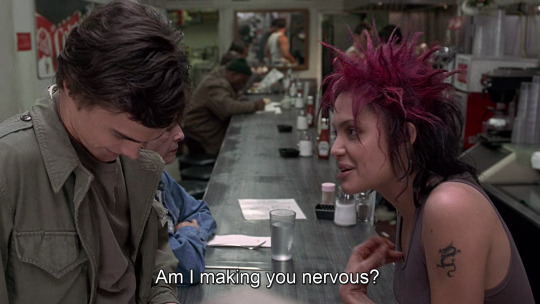
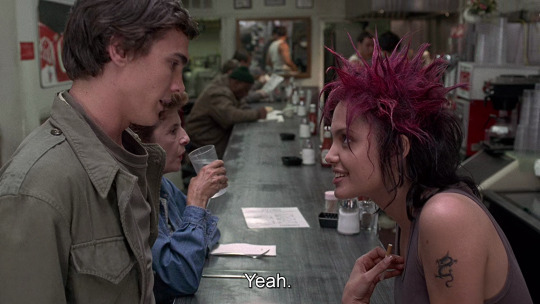
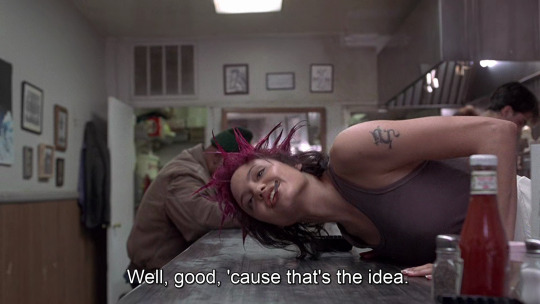
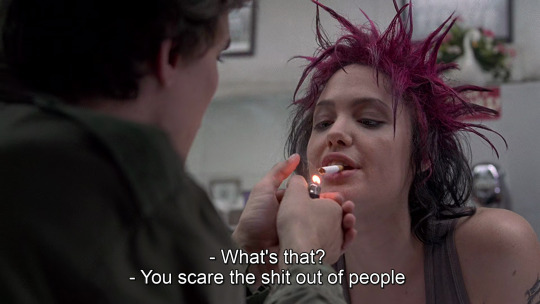
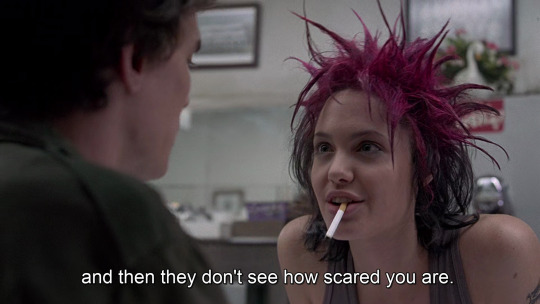

Gia, Michael Cristofer (1998)
Cinematography: Rodrigo Garcia
| USA
#Gia#Femme de rêve#Michael Cristofer#Eric Michael Cole#Angelina Jolie#Made for TV#Biopics#Couples#Punks#Restaurants#Fear#Looks#Smoking#Tattoos#1998
74 notes
·
View notes
Text
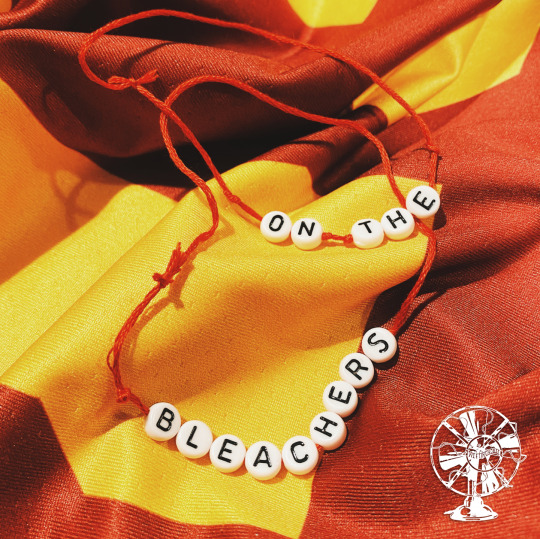
Episode 210: The RPF Tipping Point
On Episode 210, “The RPF Tipping Point,” Elizabeth and Flourish welcome back Grace and the Fever author Zan Romanoff (@zanopticon) to talk about her new podcast, On the Bleachers, on Taylor Swift, football player Travis Kelce, and the pop-culture firestorm their relationship (???) has sparked. Topics discussed include the backlash against the ripped-from-the-headlines romance novel Roughing the Princess, the fuzziness between RPF, biopics, celebrity profiles, and social-media narratives, and how Zan—who’s written plain old RPF in addition to meta fiction about celebrities and fans—thinks about her own work in light of these thorny boundaries.
Click through to our site to listen or read a full transcript!
#fandom#fansplaining#zan romanoff#on the bleachers#taylor swift#travis kelce#RPF#romance#pull to publish#celebrity fandom#biopics
37 notes
·
View notes
Text
have any of you seen byron 2003? i've always been too afraid to watch it and am looking for opinions/reviews...
#the romantics#romanticism#english romanticism#lord byron#byron#byronism#byron 2003#literature#english literature#biopics
17 notes
·
View notes
Text
True Stories Left Out Of Biopics To Make The Person Look Better
Gandhi - the film assumes that Mahatma Gandhi was morally pristine because he was starving all the time. Not the case. As it turns out, the brave, peaceful hero of Colonial India was actually kind of a pervert. As a 'test' of his piety and purity, he would sleep next to young girls - including his grand-niece - and force himself not to touch them or become aroused. This disrespect for women fell in line with his documented assertion that menstrual blood is a "manifestation of the distortion of a woman's soul by her sexuality." Oh and he also believed that Black people are sub-human.
The Miracle Worker - A 1962 film about tutor Anne Sullivan teaching Helen Keller about friendship etc. Helen Keller is considered to be one of the most heroic people of all time, and for good reason: though blind and deaf from a young age, she went on to receive a Bachelor of Arts and inspire people across the country through lectures and writings. Despite her own disadvantages, however, she still didn't believe that other disadvantaged people should be allowed to coexist with normal citizens. In the early 20th century, as the international public began to embrace eugenics - AKA the process of filtering out undesired traits from the gene pool through breeding and genetic experiments - Keller was one of the first to write: "It is the possibility of happiness, intelligence and power that give life its sanctity, and they are absent in the case of a poor, misshapen, paralyzed, unthinking creature.” She also added that allowing a "defective" child to die was simply a “weeding of the human garden that shows a sincere love of true life”...
A Beautiful Mind - A biopic on John Nash, this beautiful, heartfelt movie about overcoming mental illness and finding true love was also about a man who hated Jewish people and inappropriate advances. Although John Nash and his wife deny any allegations that he slept with men, the records prove otherwise. Several of his male friends from young adulthood have gone public about Nash's awkward passes at them. There's also plenty of proof that Nash had ill feelings towards Jewish people, but he has since blamed those actions on being crazy.
The Iron Lady - The 2011 biopic about Margaret Thatcher aka the Iron Lady seemed to fall to include Thatcher's toxic attitudes towards non-whites and non-straights. According to close associates of the Iron Lady she stubbornly stigmatized LGBT people in legislation and encouraged Australia to block immigration from Asia.
‘Straight Outta Compton' - Left Out Dr. Dre's History Of Assault
40 notes
·
View notes
Text
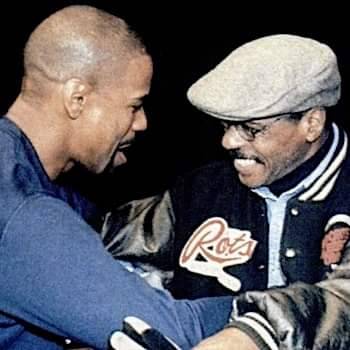
Denzel Washington and Rubin "Hurricane" Carter.
8 notes
·
View notes
Text
Recently I watched a video by antiheroines on “Female Biopics: The Good And The Bad” and I hated it so much, so let’s talk about it.
In the video she talked about three biopics; Priscilla, Spencer and Blonde. When she said that she didn’t know anything about the women depicted in these films, and then didn’t bother to do any research, I knew this video was going to go downhill. I was quite a fan of antiheroines due to their usually in-depth videos, so it was quite jarring for her to dismiss Priscilla, a biopic based off a book that the real Priscilla herself wrote, as a watered down version of a fan fiction trope. The lack of research really shines through here.
But I gave it the benefit of the doubt, since this video seemed to veer into more of an opinion peice, and everyone is entitled to have their own. But when I got to her review of Blonde, I laughed in the ignorance of the review. For a channel that wrote a video on “female revenge” to have loved the mockery that was Blonde was shocking. For someone who talked of the exploitation of female suffering to turn around and like the biopic that made Marylin Manroes pain a spectacle above all else felt like some distasteful joke.
Even worse, antiheroines so unabashedly tried to justify her opinion that she accidentally gave herself somewhat of a superiority complex by saying “if your easily triggered by these kind of topics, you should look up these warning before hand, I personally don’t need warnings, when I can close my eyes and look away” as if the only reason people disliked the movie was because they were “triggered” by it. She also says “I was able to seperate the art from the artist” which was so ignorant because even if the movie was not about Marlyin Manroe it is so clearly trauma porn.
She says that “she likes things that traumatize you” well congratulations, you like trauma porn. This is when someone shares a story of trauma without considering its impact, which she clearly did when making the video. Trauma porn is designed not for the marginalized group, but for the non-marginalized group to watch and indulge in, and then be entertained by it. Antiheroines said that none of the scenes felt like they were sexualizing Marilyn Manroe (they were) but the closeups of the actors horrified face in the most intimate places were not? Those are meant to be arousing, to those who enjoy seeing the pain of women, and proves that you like watching the trauma of fictionalized versions of real women. She says that she wants a movie “where everything that could go wrong goes wrong” and I think that really sums up who she is as a person. Trauma porn is a way for non-marginalized people to feel better about themselves, and though I am speculating about her identity here, I think her liking this movie is really telling of that.
She says that she will read the book the blonde movie is based off of, and makes a weird comment that she trusts it as fact because it is written by a woman. The book is by Joyce Carol who even as a woman was profiting off a fictionalalized market for female suffering. Don’t read the book, it fabricated to maximize the pain of public figure who needs to be laid to rest.
Overall I decided to share this rant, even though it is niche and differs from my usuals posts because it serves as a reminder that women can uplift female trauma porn, to be cautionary of antiheroines videos and a lesson in ignorance. If you’re a video essayist, or an analysis or whatever, always ALWAYS do your research so you do not perpetuate harm.
9 notes
·
View notes
Note
☕️ what do you think about RPF (real person fiction) and biopics? Do you think biopics should 100% be correct or is it okay for things to be changed for *dramatic effect*?
I would prefer 100% authenticity-- when biopics or biographies or autobiographies deviate from reality without specifying and explaining their changes, then it gets annoying.
RPF is either or: if the person being RPFed is amused more than discomfited by it, go for it! XDDD If they're not, it becomes that weird area of "real person doesn't like that aspect of their public/personal life but also other people have the freedom to do/write what they want", etc. Personal morals or ethics would dictate from there. :)))
#asks#baronessblixen#tea asks#RPF#biopics#the “fight” in Ford vs Ferrari for instance#didn't happen IRL#but the actors made sure to say that in each interview#and since it wasn't a huge cornerstone for the real people they represented#then that's okay#the new Napolean movie depicting him cannonballing Egypt however....
9 notes
·
View notes
Text
I’ve watched a lot of new (or new to me) movies in the past month, and the one that I’ve thought about and been devasted by the most is Shaka King’s Judas and the Black Messiah (2021). I watch a lot of biopics, and it seems like there are a lot of movies about good people doing brave things and evil people doing terrible things, but not a lot about people who are not evil but do evil things because they don’t want to face the consequences of not doing them. Apart from J. Edgar Hoover, of whom Martin Sheen somehow gives the most chilling portrayal I’ve ever seen, there isn’t really a villain. Instead, there are tense moments where Bill O’Neal (LaKeith Stanfield) and Roy Mitchell (Jesse Plemons) realize that what the FBI is asking of them does not align with their personal values. They could refuse, but they very much do not do that.
The most powerful moment for me comes when O’Neal, tearing up, offers Fred Hampton (Daniel Kaluuya) a refill, which the audience knows is a pretext for him to administer the drug the FBI has given him. A refill seems like an odd thing to be shedding tears over, but Fred is not suspicious. He believes he is going to be arrested soon and that his friend’s tears are a sign of love, which . . . isn’t not true. After all, Judas loved Jesus. But he also believes that love makes O’Neal trustworthy, which is definitely not true.
Love and morality aren’t worth very much if one’s actions do not support them. Before the credits roll, the movie tells us that Bill O’Neal committed suicide in 1990. Like Judas, he faced even worse consequences than the ones he feared. The story, though, does not simply condemn one historical person. Rather, it centers a kind of person that is far more common throughout history than the likes of Hampton or Hoover.
#judas and the black messiah 2021#shaka king#biopics#lakeith stanfield#daniel kaluuya#american history#bill o'neal#fred hampton
24 notes
·
View notes
Text
251 - Love and Mercy (with Taylor Cole!)

Are you loving our new original intro music, listeners? We're joined this week by its composer and our friend Taylor Cole to muse on the genre musical biopic with 2015's Love and Mercy. The film follows different chapters of Brian Wilson's life and mental wellness journey, with Paul Dano taking on Wilson's life as he experimented with The Beach Boys' sound and John Cusack as the later Wilson. After a debut at the 2014 TIFF, the film launched in the summer to positive reviews and a slew of precursor nominations for Dano. But much like the Academy voted with The Fablemans this past year, Dano was left out at the last moment.
This episode, we discuss how the film's structure appropriately tells Wilson's story while creatively twisting the standard biopic framework. We also discuss Elizabeth Banks' performance headlining the later portions of the film, divisive feelings about Dano's earlier performances, and 2015 Best Supporting Actor.
Topics also include Cusack strike tweeting, presenting Chicago to Social Studies class, and our relationships with the music of The Beach Boys.
Don't forget to subscribe to our Patreon, This Had Oscar Buzz: Turbulent Brilliance, over at patreon.com/thishadoscarbuzz!!
Links:
The 2015 Oscar nominations
Joe and Chris on The Great American Pop Culture Quiz Show
Subscribe:
Patreon
Spotify
Apple Podcasts
Google Play
#The Beach Boys#Brian Wilson#Paul Dano#Elizabeth Banks#Bill Pohlad#Oren Moverman#John Cusack#Paul Giamatti#Bill Camp#musical biopics#biopics#Best Supporting Actor#Academy Awards#Oscars#movies
8 notes
·
View notes
Text
If you want accuracy, watch a documentary. Biopics are meant to be a dramatized celebration, or condemnation of someone’s life in three acts.
8 notes
·
View notes
Text
Pattie Boyd on Sam Mendes directing biopics on each Beatle: “How is he going to do it? There are very few people still alive who know them all really well and Sam can’t just get his information from Google. We’ve had Get Back, which was amazing, so we don’t need to keep going. Don’t you think so?”
4 notes
·
View notes
Text

#tweet#tweets#best of tweets#biopic#biopics#amy winehouse#whitney houston#tina turner#elvis presley#priscilla presley
6 notes
·
View notes
Text
So we’re just gonna keep getting musical biopics now.
Okay.
3 notes
·
View notes
Text

"Control" (2007)
Directed by Anton Corbijn
(Biography/Drama/Music)
#control#2007#joy division#ian curtis#anton corbijn#biopics#biopic#cinema#cinema title cards#film#gif
12 notes
·
View notes
Text
Maestro

Remember the old Hollywood composer biographies. They had terrible, usually fraudulent scripts, but they also had rafts of guest stars showcasing the subjects’ works. Sure, you had to slog through some terrible writing, but you were rewarded by hearing Judy Garland sing or watching Gene Kelly or Ann Miller dance or catching some hot jazz from Lena Horne or Hazel Scott. The only attempt to do anything like that recently was DELOVELY (2004), which had some good musical guests (and a few clinkers; if you did to Sheryl Crow what she did to Cole Porter you’d be on death row). When Nick Blaemire and Mallory Portnow, as Adolph Green and Betty Comden, gave out with a spirited rendition of “Carried Away” from ON THE TOWN in Bradley Cooper’s MAESTRO (2023, Netflix), I kept wishing he’d made the film in that mold. Cooper is a good director, but his script, written with Josh Singer, does him a terrible disservice. It lurches through history and somehow leaves out a lot of the character motivations, while occasionally stooping to rank cliches. When Cooper’s Bernstein and his wife, Carey Mulligan as Felicia Montealegre, fight, she says his conducting comes out of hate, not love. After they’ve become estranged, she attends his performance of Mahler’s 2nd and says, “There is no hate…there is no hate in your heart.” Why? What’s changed? Is it because he’s had a few years of good loving from his assistant (Gideon Glick, who sadly comes across as just a boytoy instead of the accomplished musician Tommy Cochran was)? Or is she lying so he’ll go with her when she undergoes cancer testing? Who knows? The writing would be a lot easier to forgive, and they might have to cut some of the repetition, if they’d throw in some good numbers. Imagine Annaleigh Ashford belting out “Swing” from WONDERFUL TOWN or Isaac Powell singing “Something’s Coming” from WEST SIDE STORY or June Gable doing “I Am Easily Assimilated” from CANDIDE instead of just appearing as an in joke to ask how to pronounce Spanish she had delivered expertly in the show’s 1974 revival.
What’s harder to forgive is the way the film seems to demonize Bernstein’s sexuality. He jumps from lover Matt Bomer’s bed to courting Mulligan in what feels like a heartbeat and then heartlessly introduces the two as if they should be happy to share him. And treating Glick’s character as just his boyfriend reduces a relationship founded in respect and artistic creation to lust. I get the point that Bernstein was a hedonist who gave in to all of his appetites (Cooper rarely has a cigarette out of his mouth), but the film focuses so much on how he does his wife dirt, it probably should have been called VICTIM.
Anyway, Cooper makes some strong directorial choices when the script isn’t getting in the way. At the start, Bernstein learns he’s to conduct the New York Philharmonic for the first time — the concert that made his name — and runs jubilantly from his bedroom into the auditorium as the score to ON THE WATERFRONT plays. At the premiere of MASS, the camera pans over Bernstein’s box, with Glick, Cooper and Mulligan capturing their different reactions to the music and their personal romantic triangle. Mulligan is incandescent as Monteleagre. She lives the role so completely you may not notice how underwritten it is. Cooper tries, but in contrast, he seems just to be a voice and makeup job. He never disappears into the character. The only supporting cast members who gets any chance to register are Bomer and Sarah Silverman as Bernstein’s sister. For the rest, the film is dismally underpopulated despite having actors playing major figures in Bernstein’s life and American arts.
#biopics#leonard bernstein#felicia montealegre#bradley cooper#carey mulligan#matt bomer#sarah silverman#gideon glick
2 notes
·
View notes